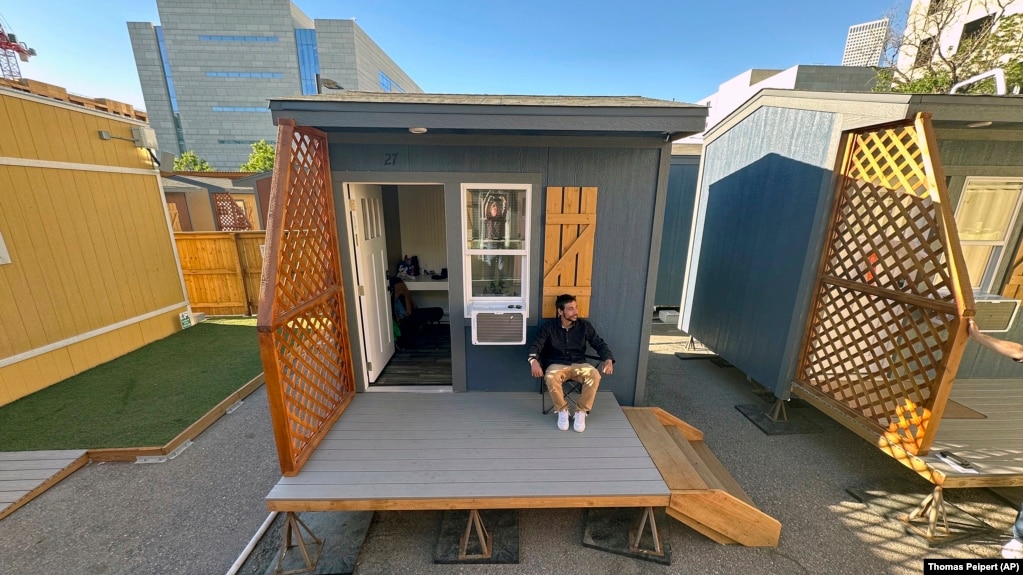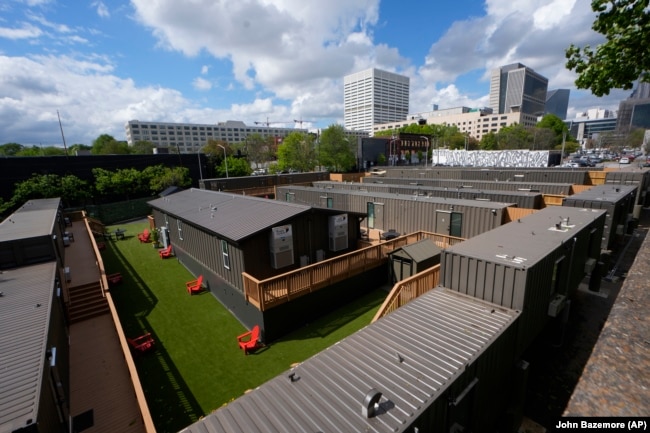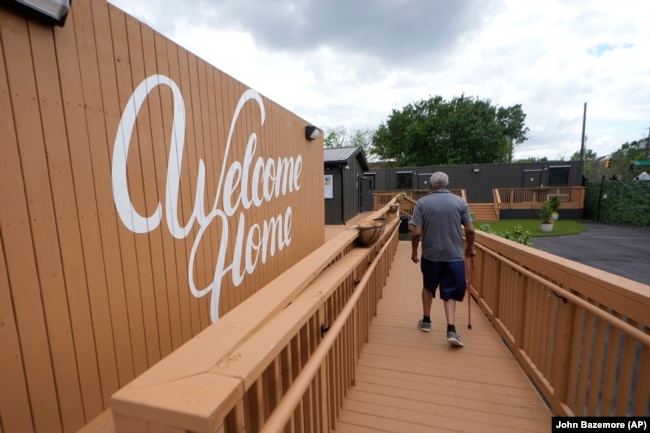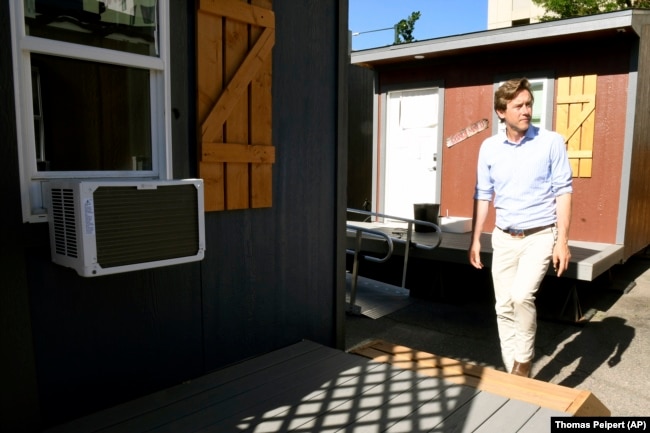AUDIO
US Cities Build Small Communities for the Homeless

Some U.S. cities are building housing, called “micro communities,” that is meant to combat increasing homelessness. The housing units in these communities are small and built quickly.
Unlike group shelters, micro communities give each homeless person his or her own living space. Officials say they believe the communities, when combined with other services, can put their residents on a path to permanent housing more effectively than other projects for the homeless.
A micro community
The Melody is a micro community built on a former parking lot in the city of Atlanta, Georgia. Officials built 40 small studio apartments from shipping containers. Each studio has many things needed for the home. These include a single bed, a heating and cooling system, a microwave oven, a TV, a desk, a sink and a bathroom. The area also has plants, green plastic ground covering, and a place to walk dogs.

Cynthia Diamond is a 61-year-old former cook who uses a wheelchair. She has been homeless for many years. Now she lives at The Melody. She told reporters that she is very thankful to live in the community and enjoys having her own living space. “I have my own door key…I’m going to stay here as long as the Lord allows me to stay here,” she said.
The city of Denver, Colorado, has built three micro communities. It has also turned hotels into housing for the homeless. In Los Angeles, a 232-unit community has two buildings, each with three levels that are made from shipping containers.
The latest information says over 1,500 people in Denver have joined its housing program. Over 80 percent of those who joined are still in the housing.
Both Atlanta’s and Denver’s programs act as steps to help people find jobs and permanent housing. Denver aims to move people from the micro communities into permanent housing within six months.
That includes Eric Martinez, aged 28, who has been homeless for much of his life. He said homelessness “…makes me feel less of a person. I had to get out of it.”
The services in the micro communities are mostly centralized. They offer treatment for mental health, drug and alcohol abuse. They also provide advice, job training and other forms of help. Martinez said the community has been “very uplifting and supporting.”
Peter Cumiskey works at The Melody in Atlanta. He said the micro community is able to serve every level of a person’s needs, “from security and shelter, all the way up to self-actualization and the sense of community.”

Program costs and development
The city of Denver built a total of 160 small structures. Denver’s mayor Mike Johnston told the Associated Press (AP) that it took about six months to complete them. Each unit costs $25,000, he said. One thousand converted hotel units cost about $100,000 each.
The Melody project in Atlanta took four months to build. Each unit costs about $125,000. Support workers and security operations cost about $900,000 a year.
Andre Dickens is Atlanta’s mayor. He wants to supply 500 units of quickly built housing on city-owned land by December 2025.
Few people in Atlanta expressed worry when The Melody was announced last year. However, as city officials look to expand rapid-housing areas, they know people might not support the idea.

In Denver, Johnston said he attended at least 60 meetings with residents in six months as the city tried to find places for the new communities. Local residents expressed worry about issues such as waste and safety.
“What they are worried about is their current experience of unsheltered homelessness,” Johnston said. He said city officials needed to show residents that micro communities could be successful. With the existing projects, he now says he has some proof to reduce residents’ concerns.
As for Martinez, he keeps all his belongings ready in case he has to move although he says he feels secure in his small home with his cat, Appa.
He is now preparing for the next steps in his path towards permanent housing. He has a date for a meeting about a new job. The next step for him is to receive a document showing he qualifies for financial support from the city to rent an apartment.
“I’m always looking down on myself for some reason,” he said. But “I feel like I’ve been doing a pretty good job. Everyone is pretty proud of me,” he added.
________________________________________________
Words in This Story
unit –n. one of a group of homes in a development or apartment building
resident –n. a person who lives in a place
parking lot –n. a large flat area where people can put their cars for a period
studio apartment –n. a home in a building that has one living space and a bathroom
allow –v. to permit
rent –v. to pay to use property, such as an apartment or a car, that is owned by someone else
https://learningenglish.voanews.com/a/us-cities-build-small-communities-for-the-homeless-/7660369.html